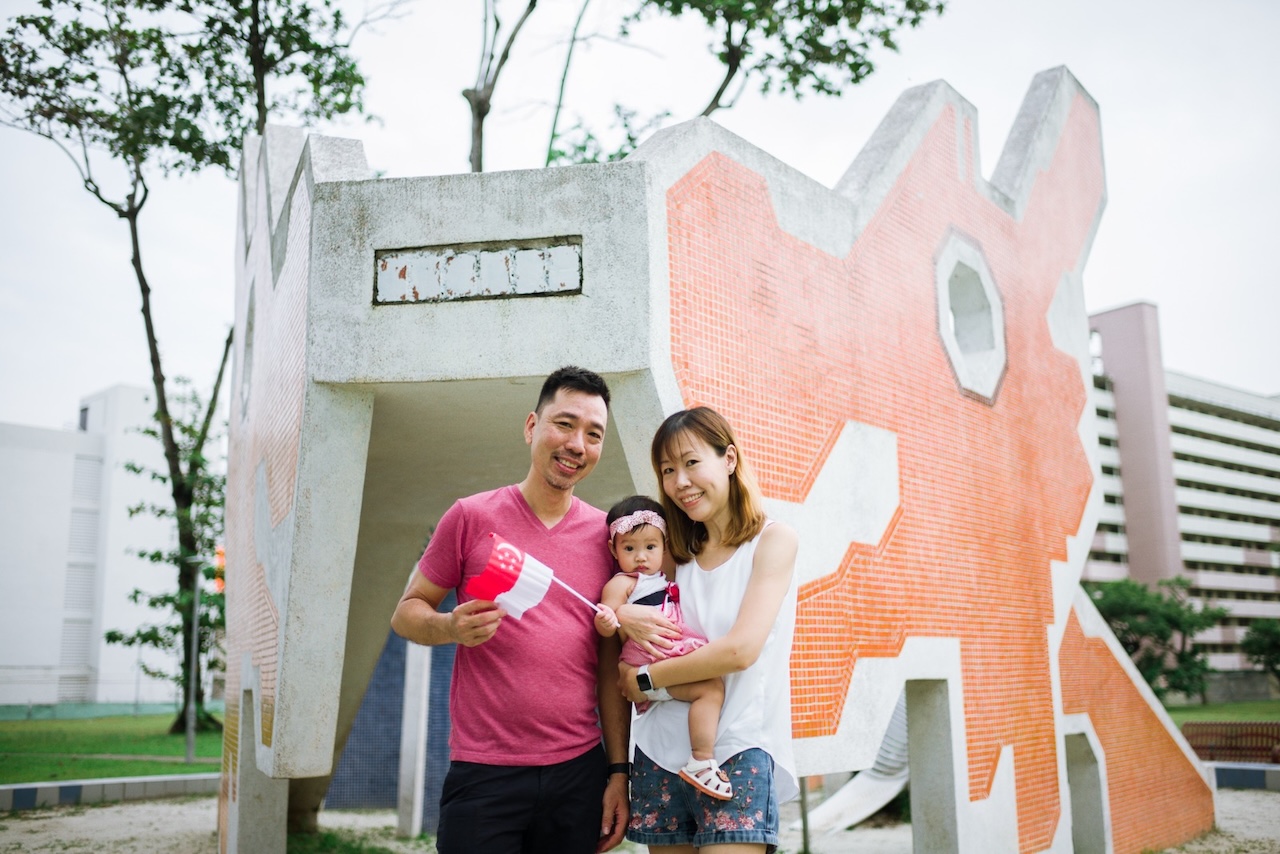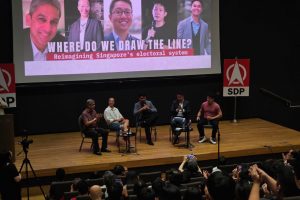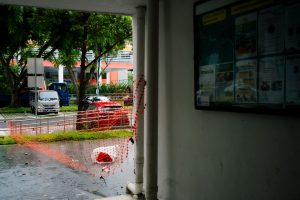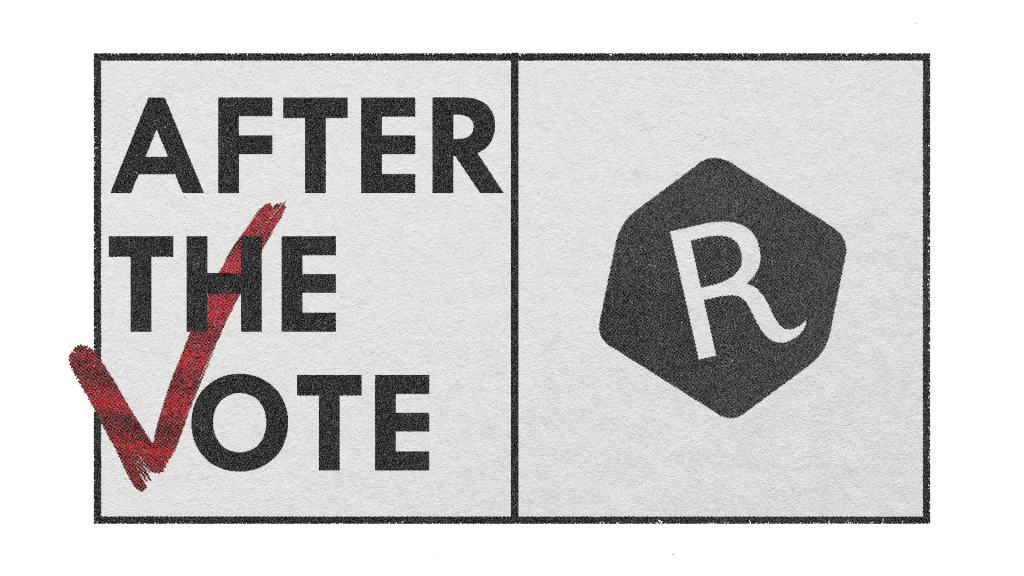
‘After the Vote‘ is a RICE Media series where Singaporeans from all walks of life share their hopes for Singapore—the changes they envision, the values they want to uphold, and the future they want to help shape.
As GE2025 approaches, we take a step back from the antics and theatrics to explore the bigger picture: What kind of Singapore are we building beyond this election? Through these conversations, we uncover the aspirations and concerns shaping the nation in the next five years and beyond.
The views in ‘After the Vote’ are those of the interviewees and based on their experiences; they do not reflect the publication’s stance.
All images courtesy of Andrew Ong
At 47, Andrew Ong is living proof that second chances can go the distance—literally.
As a former gang member who was once trapped in the cycle of crime and incarceration (first for rioting, then for insubordination during reservist duties), he knows what it means to be judged and written off. But after his release in 2000, he set out to change that narrative, dedicating himself to helping others like him find their footing in a society that still sees them as outsiders.
His initiative, Break The Cycle, does just that. By turning cycling into a lifeline, he’s built a community where ex-offenders can reclaim discipline, self-esteem, purpose, and a sense of belonging. A vocal advocate for reintegration, he understands just how easy it is to fall back into old habits—and how critical an empathetic support system is to move forward.
With the 2025 General Election around the corner, RICE is taking a longer-term view towards the Singapore we’re collectively building. And Andrew has plenty to say about what it will take for us to pave smoother roads to redemption.
What is one change you hope to see in Singapore by 2030 that would make life meaningfully better for people like you?
By 2030, I hope to see fairer and more inclusive hiring practices for ex-offenders in Singapore. While attitudes have improved over the years, barriers remain that prevent ex-offenders from rebuilding their lives.
One major obstacle is the requirement to declare criminal records on job applications. That’s an area that needs to change.
For many ex-offenders trying to turn their lives around, the stigma is real. It’s not just about finding a job but securing a career. I hope employers—whether SMEs, MNCs, or even government agencies—focus more on skills, potential, and willingness to contribute rather than a person’s past.
Take the declaration of criminal records. The moment you tick that box, it’s like being condemned. The chances of getting an interview, let alone a job, are probably gone.
That said, Singapore is moving in the right direction. Earlier this year, Parliament passed the Workplace Fairness Bill, tackling discrimination based on age, nationality, gender, marital status, pregnancy, caregiving responsibilities, race, religion, disability, and mental health.
Notably, mental health declarations were removed from job applications in 2019 thanks to collective efforts by employers, the government, and advocacy groups. I hope ex-offenders won’t be overlooked in this progress.
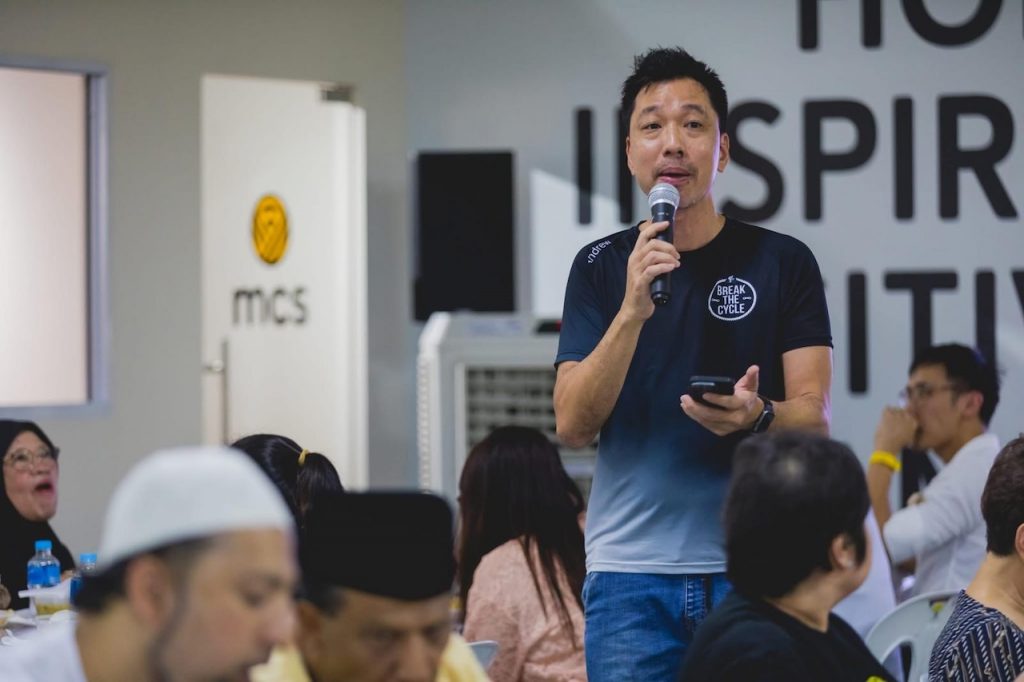
It’s really about finding the right balance between giving ex-offenders a fair chance and ensuring societal safety. I’m not saying we should remove the declaration entirely overnight, but we can take a calibrated approach, adjusting by industry.
For instance, sectors like education, finance, and security may require stricter checks. But for fields like logistics, F&B, or admin work, does a past conviction really matter?
Another option: move the declaration to the final hiring stage. That way, decisions are based on merit, and we have a chance to explain our past in person.
Right now, there’s no space to tell our story. It’s just a checkbox. And with many applications being screened by algorithms now, it’s even harder to be seen beyond that.
What’s a challenge Singapore must overcome in the next few years to stay a place where people want to live and thrive?
One challenge Singaporeans must overcome is our increasingly judgmental mindset, which I believe is being amplified by social media.
These days, media content is all short-form—quick bites that give a glimpse into a situation without full context. This has made people too quick to judge, especially when it comes to those with difficult pasts or who have made mistakes.
Take the recent tragic case of Megan Khung, the four-year-old girl. Many would know she was the daughter of SimonBoy, the content creator who’s also an ex-offender and former drug addict.
I saw comments on articles about it—many netizens blamed SimonBoy, made nasty remarks, and even called it karma. They pointed to his past marriages and faults, but I don’t think he ever shirked his responsibilities.
At the time, he was in a halfway house, recovering from addiction and trying to turn his life around. But people didn’t know the full story and still cast stones at him.
That’s the reality for many ex-offenders—people like him, people like me—who are determined to rebuild our lives. The stigma is always there.
While us ex-offenders learn to accept it, I believe society would be better if we were less quick to judge, more willing to believe in second chances, and saw people for who they are today. Not just who they were.
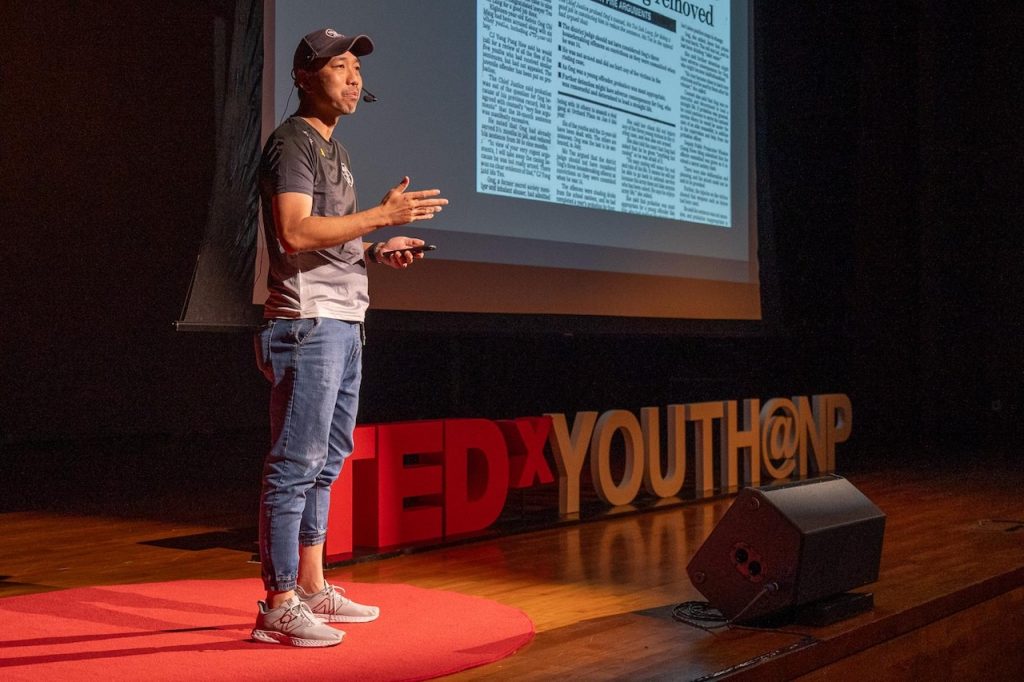
If you could introduce a new national priority for Singapore, what would it be?
Personally, I don’t have anything new to add because this is already something the government is working on through initiatives like Forward Singapore. The goal is to build a more inclusive and compassionate society where everyone—ex-offenders, PWDs, low-income families—has equal opportunities.
I think that’s the right national priority. As we grow economically, social cohesion and fairness must keep pace. If we progress as a country but leave the vulnerable behind, then we’ve failed as a society, no matter how wealthy or advanced we become.
Looking at the global situation, we see rising nationalism and societies becoming more divided. That’s worrying, especially for a small nation like ours, where we need to rely on each other.
I think the tendency to tear each other down comes from a lack of empathy. In Singapore, we’ve been fortunate—we don’t experience real hardship like other citizens do. We’re progressive, we have stable lives, and for the most part, our basic needs are covered. Many of us are striving for self-actualisation rather than struggling to survive.
But not everyone here has that privilege. Some people have been dealt a bad hand and are simply trying to make it. The lack of empathy comes from forgetting that what we have isn’t purely self-made—it’s not a God-given right.
I also think comfort breeds self-righteousness. There’s that social experiment showing that people in poverty tend to be more generous because they know what struggle feels like. When you’re too comfortable, it’s easy to believe your success is purely a result of your own wisdom and sound decisions.
But have you ever considered why you even had those choices in the first place? Not everyone gets the same options in life. And that’s part of what it means to be successful as a country—understanding that not everyone starts from the same place.
Of course, credit where it’s due: for the past 59 years, we’ve had a stable government. There’s always room for improvement, but we’ve gotten more right than wrong. Every decision—whether at a national or personal level—comes with trade-offs. There’s no perfect solution.
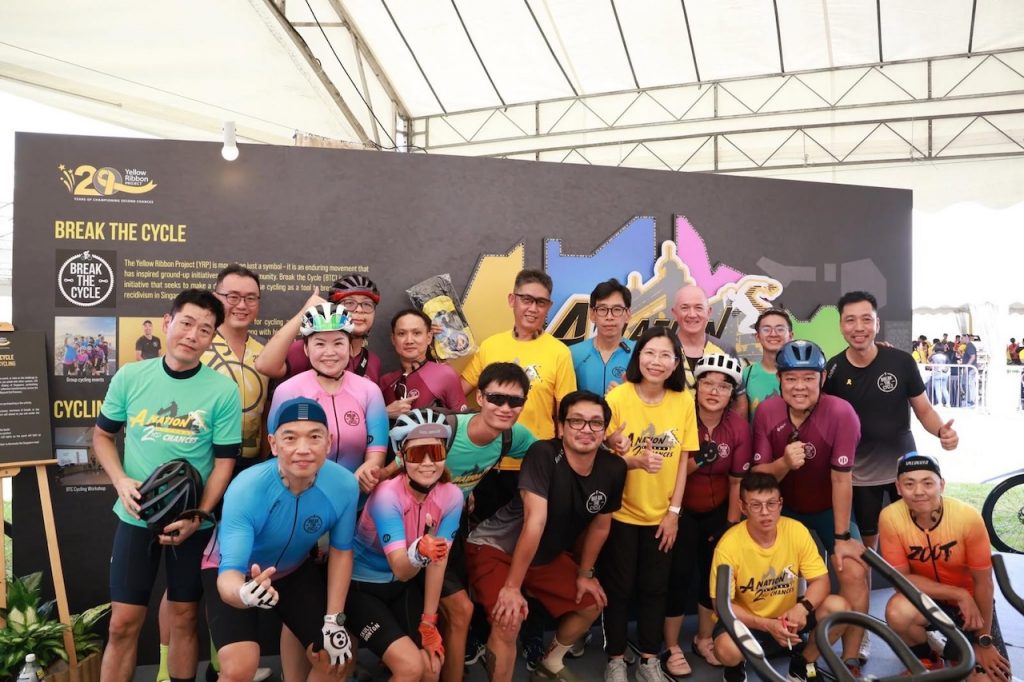
What small shift—policy or mindset—could make a big difference in the daily lives of your community?
I was last incarcerated in 1998 and released in 2000, so I can’t speak much about current prison conditions. Back then, there was no privacy, no shower taps—we had to draw water from the toilet flush. Ventilation was poor, turning the cells into saunas. Even today, prisoners still sleep on straw mats.
Beyond that, there’s the psychological toll—our identities stripped away, reduced to prisoner IDs instead of names.
But I understand the intent. Prison isn’t meant to be comfortable, and there’s also the aspect of ensuring safety and security for both inmates and officers. Rather than dwell on what can’t be changed, I’d rather focus on what we can: helping ex-offenders rebuild their lives after release.
Thankfully, our government and key stakeholders in the aftercare sector recognise the need to reduce the recidivism rate. In case you don’t know, out of 10 ex-offenders, four will re-offend and return to prison within five years.
Right now, the approach to lowering recidivism is simple: keep ex-offenders out of prison. That’s the KPI. As long as they don’t go back, it’s seen as a success story. But I think that’s short-sighted.
The real goal should be to develop their potential and help them become contributing citizens. While there are meaningful initiatives like academic programmes and skills training in prison, the environment is vastly different from the outside world. The application of knowledge and skills remains limited within a closed environment.
Simply keeping people out of prison doesn’t mean they’ve changed. Avoiding reoffending isn’t the same as true reintegration or reaching one’s full potential.
The real solution is transformation. Ex-offenders need to see a future worth striving for, a clear alternative to a life of crime or addiction. That means moving beyond just offering them jobs. We need to offer careers.
Right now, ex-offenders who leave prison are generally placed in labour-intensive jobs, like cleaners or movers, through support initiatives like the Yellow Ribbon Singapore. That’s a start, but it shouldn’t be the end.
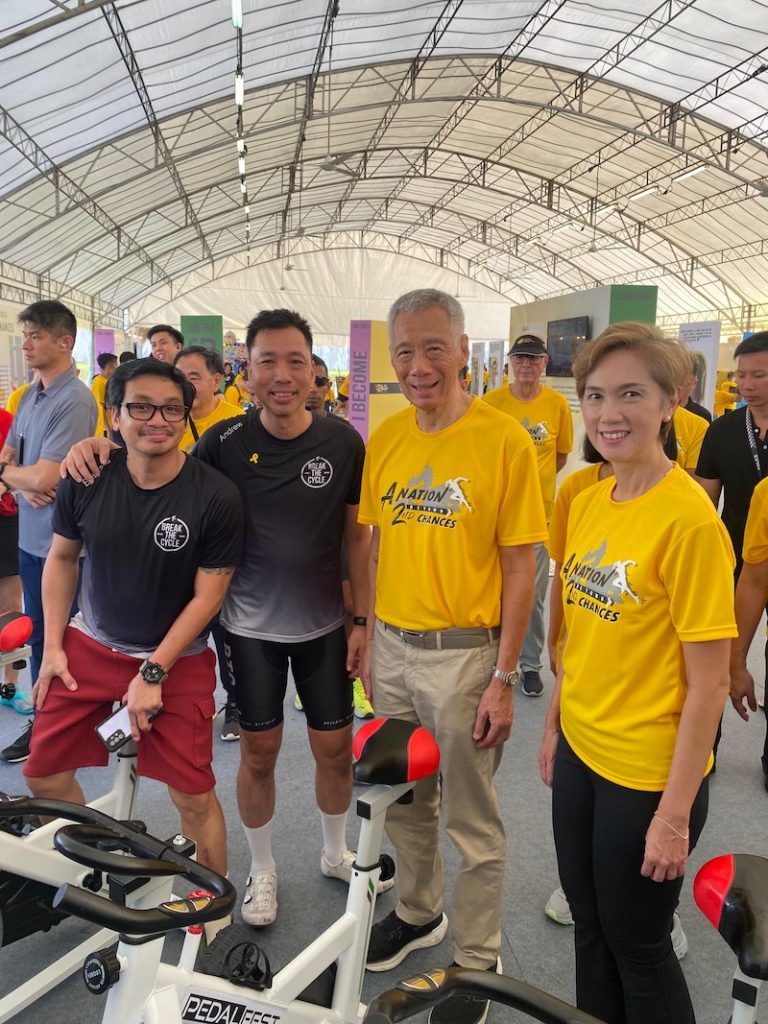
The question should be: What’s next? How do we help them progress?
I’m not saying these jobs aren’t dignified—they provide a decent living. But many ex-offenders don’t stay in these jobs long-term. Within six months to a year, they start looking for better opportunities on their own.
And that’s when a major roadblock appears: the declaration of criminal records. If this barrier isn’t removed, ex-offenders remain trapped in another kind of prison.
Singapore moves fast. What’s one thing we need to slow down for?
We need to slow down for people trying to rebuild their lives. In our rush for progress, we often overlook that reintegration takes time, support, and understanding. We don’t always take the time to understand the backstory.
What do I mean by backstory? Often, we push ex-offenders straight into employment, thinking they can be productive right away. But many ex-offenders carry deep psychological and emotional wounds. Many have experienced trauma—some were victims of physical or emotional abuse in their youth.
So they fell into the wrong company. They were given bad advice and bad coping mechanisms—drugs, crime—until their lives spiralled. We often see them only as offenders, but in many ways, they are also victims.
I can relate to this personally. Looking back, I see the choices that led me down the wrong path. It took me at least ten years to develop the self-awareness to work through my anger, my stress, and my inability to cope.
Growing up, I didn’t have a conducive environment to learn emotional regulation. When you don’t know how to process emotions, you go to extremes—and sometimes, that extreme is crime.
All these things take time to reboot and overhaul our operating systems before going straight back to work.
After years in prison, they return to a world that has changed. Maybe there are new technologies; maybe they have to go through a divorce; maybe their parents disown them.
Yet they have to pretend that nothing has happened. People around them who are supporting them understand they need time to readjust. But unfortunately, in our society, it is a bit hard.
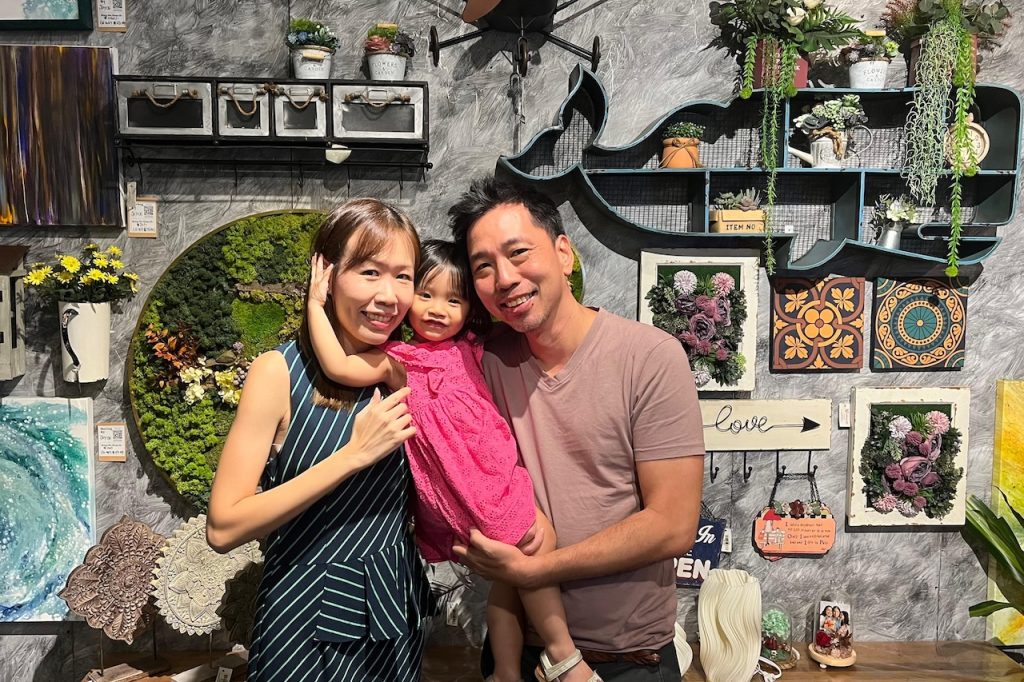
Where do you learn to slow down? It starts with families.
I only truly understood after having my daughter. My wife and I went 15 years without children, doing whatever we wanted. But when our daughter came into our lives, I realised that I had to slow down—to meet her at her level, to be patient, to nurture. You can’t rush a child’s growth. You cannot tell the kid, hey, please run, please go and talk, please go to the shop and buy something.
So you slow down your pace. People develop empathy because they start to be more nurturing. Instead of just seeing something as a task to be done, meet your KPIs, get things done and move on.
But in our society, we often don’t do this. Parents rush back to work, hiring helpers or sending their children to childcare. They waste no time returning to progress. In doing so, we miss an opportunity to become better humans.
Slowing down teaches empathy. It shapes leadership. In the workplace, it changes how we manage people. Not as tasks to be completed, but as individuals to uplift and grow.
Pro-family policies are a step in the right direction. But I hope we can create a society where slowing down isn’t a privilege—it’s the norm. Because when we slow down, we become more compassionate. We become more inclusive.
What’s one thing about Singapore you’d want to protect for the future?
I believe in second chances and a more inclusive society. But if there’s one thing I want to protect for the future, it’s our commitment to being a safe and stable society—especially from the scourge of drugs.
I know there’s a bit of a conflict there. I mean, our stance on drugs is quite strong, right? But at the same time, I am also very aware that the scourge of drugs can destroy a society.
History has shown us how drugs have been used as a political weapon to weaken societies, and how it was used as part of colonisation.
Drugs don’t just harm individuals. They destroy families.
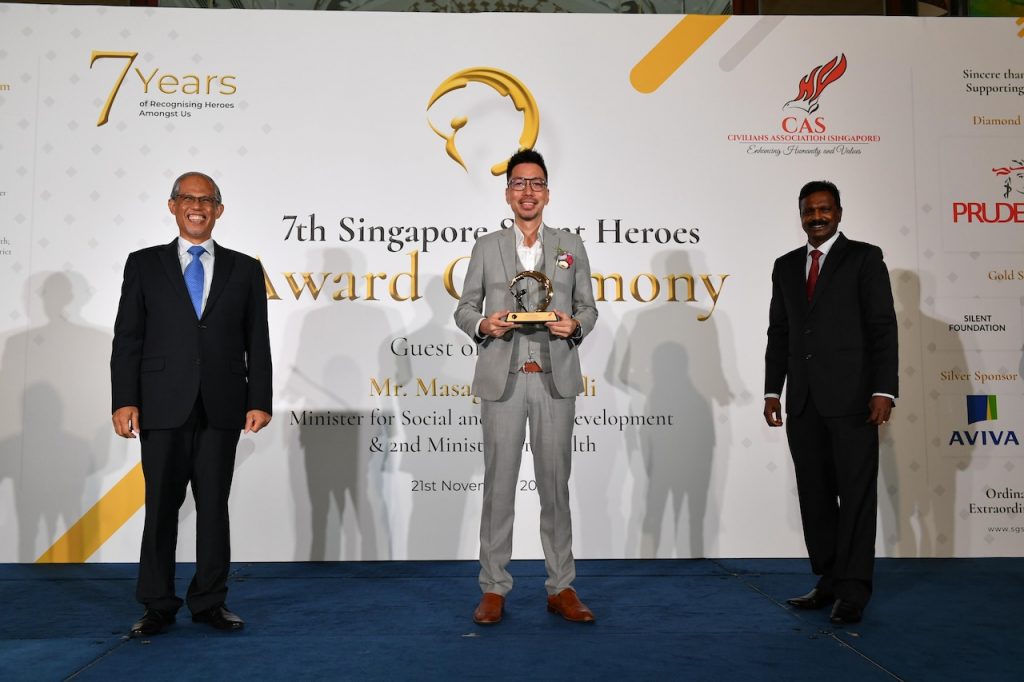
In 2030, what kind of Singapore would you be proud to call home?
I’m really proud of Singapore, but I would be even prouder if we became a society known for our inclusivity and compassion. Where people are not defined by their past mistakes but by their potential and willingness to contribute.
I hope for a Singapore where ex-offenders like myself can find fair opportunities to work, grow, and integrate—without facing lifelong stigma or feeling like second-class citizens.

